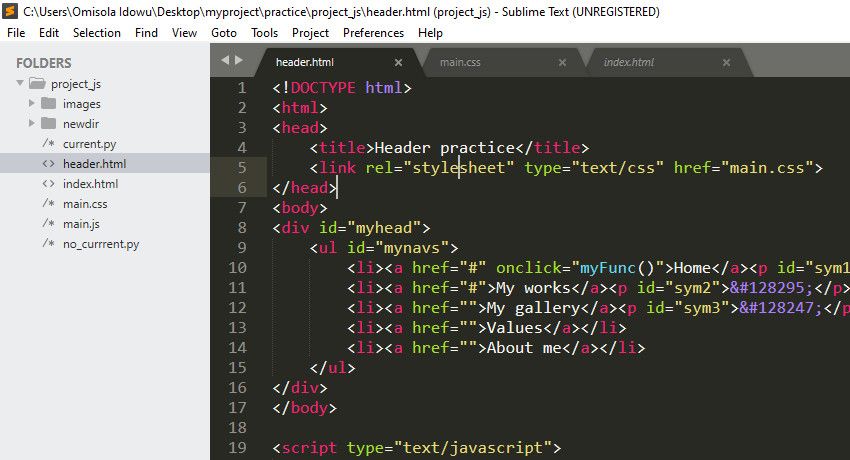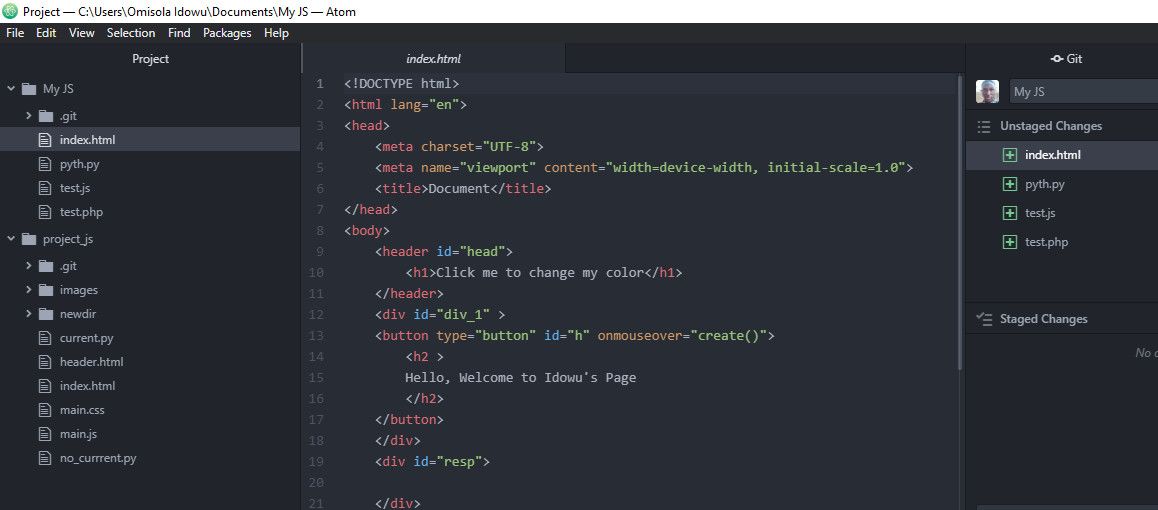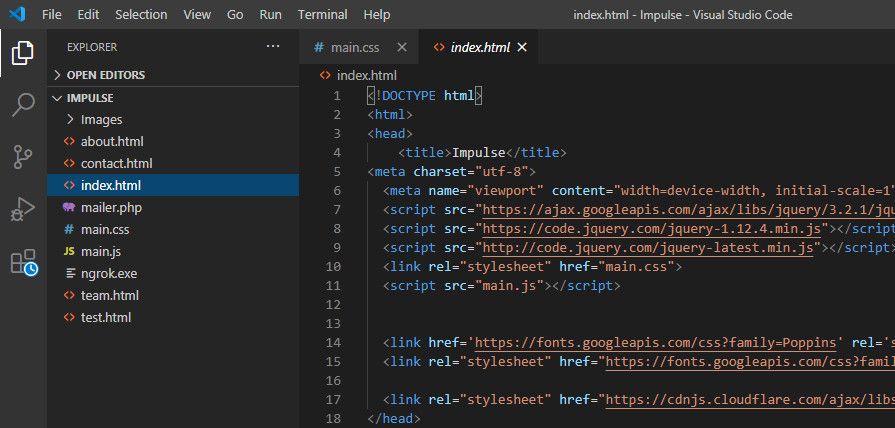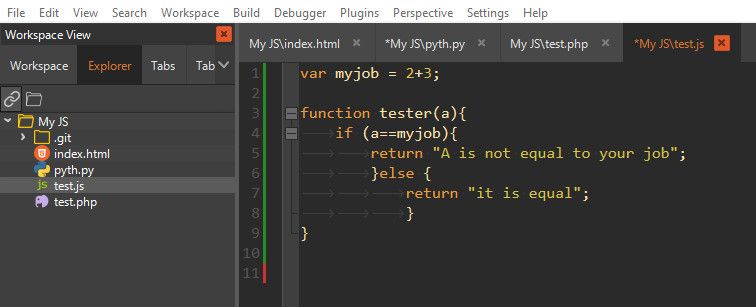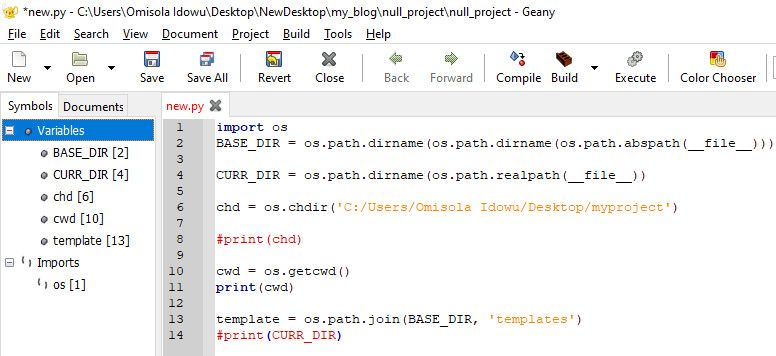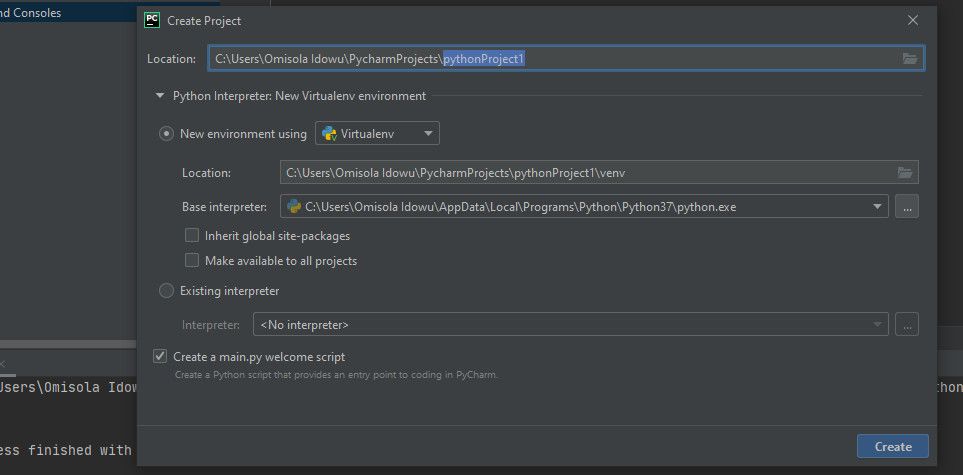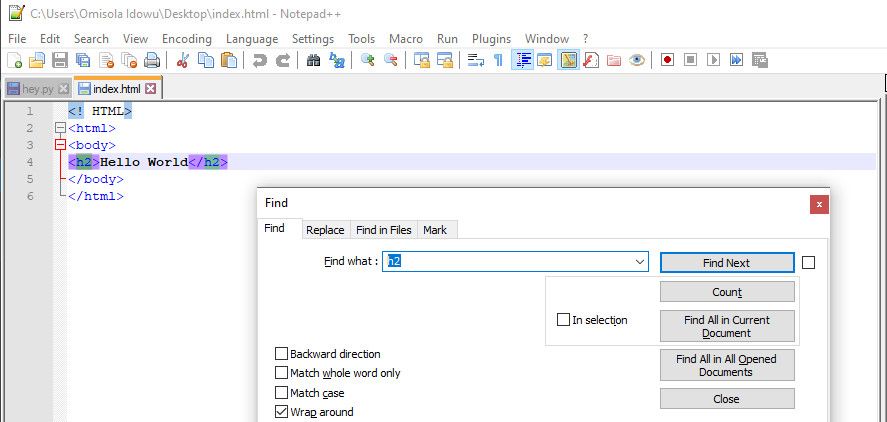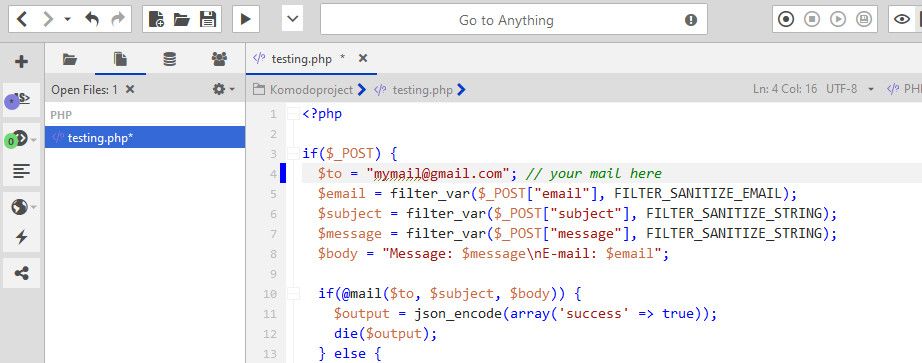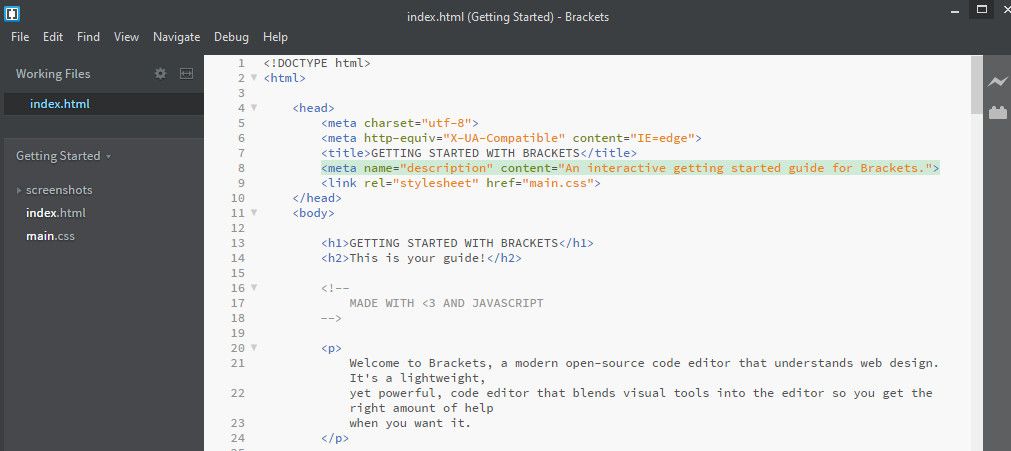Whether you're new to programming or you've been coding for a while, you still need reliable and smart code editing tools for building your apps. Fortunately, various third-party code editors and Integrated Development Environments (IDEs) are now available at no cost.
These tools aid programmers in many ways and make organizing code easier for you during development. But which code editing tools are worth giving a shot? Let's take a look at the best code editors out there right now.
1. Sublime Text
Sublime Text has a compact project management interface that lets you perform multiple development tasks at once. It's one of the most popular cross-platform text editors out there.
While Sublime Text requires a per-user license fee to get the most of it, its free-trial period has no time limit. It lets you keep working on your project indefinitely without paying for a license.
Sublime Text helps you code faster, as it comes with in-built code completion and suggestion plugins for HTML, CSS, and JavaScript. It has a high-level package control and API system that supports server-side languages like Python and PHP.
Although Sublime Text makes switching between folders easy and offers some smart packages, it doesn't have the full features of an IDE. However, the free version is a perfect code editor if you're just getting started with programming.
In addition to being able to jump between code lines, you can perform multiple line editing and split-editing quickly using Sublime Text's keyboard shortcuts.
Download: Sublime Text (Free, license purchase available)
2. Atom
Atom is one of the most user-friendly cross-platform and open-source code editors. It's a product of GitHub and also one of the best HTML editors for Mac OS. One of the benefits of this text editor is that it syncs easily with GitHub.
Developing with Atom allows you to perform GitHub tasks like pushing and committing your code to your local or remote repository, as well as executing other common GitHub tasks by merely clicking rather than using terminal commands. This can make using GitHub a lot easier for new developers.
Atom comes with many plugins like AI-powered coding assistance, linters, CSS color-pickers, terminal packages, and many more that support many programming languages.
The editor offers a unique way of switching between projects making managing multiple projects much easier. By default, Atom is a text editor, but installing its optional atom-ide-base plugin gives it the features of an IDE.
Download: Atom (Free)
3. Visual Studio Code
In addition to being one of the most popular code editors among developers, Visual Studio Code is lightweight. Also known as VS Code, it's a cross-platform product of Microsoft and has features that surpass those of a typical text editor.
VS Code lets you write your code in an interactive, simple, and AI-aided development environment. It's beginner-friendly and offers a sleek interface for file and folder management.
The app has an integrated command-line interface (CLI), as well as smart support for Git. You can also split the screen to view both the code editor and the CLI at the same time.
With the aid of several dedicated plugins and extensions, VS Code supports many programming languages and frameworks. It also has special features for running and debugging JavaScript code quickly.
VS Code's intelligent code highlighting helps you locate errors quickly before running your code.
The built-in live server has an auto-update feature that reloads your browser once you make changes to your code. This allows you to see changes in real time without needing to save and restart a local server.
Download: Visual Studio Code (Free)
4. CodeLite
CodeLite is an open-source IDE that features full support for C, C++, Node.js, and PHP. There are versions available for Linux, Mac, as well as Windows 32 and 64 bits operating systems.
Because CodeLite is an IDE, it creates a more sophisticated in-built development environment for the languages it supports with the flexibility of extending its scope with dedicated plugins. Despite its complexity, it's lightweight and easy to use.
The IDE also features generic compiler support, interactive debuggers, integrators, and code completion. Although CodeLite has advanced features that may be a bit overwhelming for beginners, getting started with its surface functionality is easy.
Its workspace and file linking features make unit testing and managing complex projects an easy task. It's an option to consider if you want to get used to the more complex aspects of programming.
Download: CodeLite (Free)
5. Geany
Designed as a light Graphic User Interface (GUI) code editor, Geany runs on multiple platforms, including Linux, Mac, and Windows.
The app works well with various programming languages and has a user-friendly interface. Although it's not an IDE, It's a Gimp Toolkit (GTK) with basic IDE features.
One of the unique features of Geany is how it highlights objects and variables, and displays their value on its Symbols sidebar option. That feature alone makes locating each element of your code easier during debugging or while writing more complex programs.
The execution of code with Geany is fast and automated. Its compiler also has a short load time and supports several programming languages including C, C++, C#, Ruby, Pascal, Python, and Java.
Download: Geany (Free)
6. Pycharm
Primarily known as a smart development environment for Python with strong support for the R programming language, Pycharm offers a great platform for many other languages as well. The community version of Pycharm is open-source and supported on all operating systems.
Pycharm works well with virtual coding and aids the development of serverless applications with its AWS toolkit. You can also install and enable its Vim emulator to access the addons and language support that the regular version of Vim provides.
The IDE uses a smart and efficient code completion technology to help developers write code quicker. Pycharm comes with built-in virtual environment tools for managing Python dependencies with a single click. However, its support for Python and R, as well as their data science frameworks and packages is Pycharm's main strength.
Download: Pycharm (Free)
7. Notepad++
Notepad++ is a source code editor, and it's one of the oldest editors around. It was originally designed for Windows, but is now available for all platforms. It has some modern features like code autocompletion and highlighting for about 80 programming languages. It's an excellent tool for editing markup, writing code, and comparing files.
One of the unique features of Notepad++ is its constant updates, which bring new features to increase its functionality.
The editor is very lightweight and requires little runtime memory. This makes it a fast and sleek app for different OS platforms, including Linux, Windows, and Mac.
Notepad++ also features a search and find functionality that makes locating tags and different types of code syntax easy. This makes it an excellent debugging and code editing tool for beginners as well as advanced developers.
Download: Notepad ++ (Free)
8. Komodo IDE
Komodo IDE is a highly customizable cross-platform and open-source IDE. It has a powerful programming tool profiling system that detects, connects with, and uses third-party packages on your environment variable PATH.
Despite being an IDE, Komodo IDE offers simplicity and functionality. It supports several programming languages. Project management with Komodo IDE is programming language-specific. This allows you to focus on specific programming languages and their packages while working on projects.
It has an optional virtualized runtime environment that lets you write code in real-time and share them with other people. One of Komodo's unique features is its support for a wide range of frameworks across several programming languages.
Komodo gives you the option to select your preferred version control system, and initialize local repositories for your projects. The IDE also comes with an inbuilt lightweight database connector to simplify the technicalities for beginners.
Download: Komodo IDE (Free)
9. Brackets
Brackets is a minimalist code editor written in JavaScript. Its inline editing feature lets you perform focused editing on selected elements of your code.
Brackets editor is a perfect tool for ront-end web development. It comes with extensive support for JavaScript, HTML, and CSS.
The editor is cross-platform, open-source, and offers a simple coding interface for beginners. Brackets editor has a DevTool connector that lets you use Chrome DevTools without opening the Chrome browser.
Download: Brackets (Free)
Does Your Choice of Code Editor or Ide Affect the Output of Your Code?
There are many code editors out there offering a range of different tools for developers. We've only mentioned a few ones that are free and easy to use for beginners.
These tools only make writing your code and connecting your files easier. They won't affect the output of your programs in any way. However, these tools are worth taking advantage of since they can help you with your workflow while working on improving your code.


